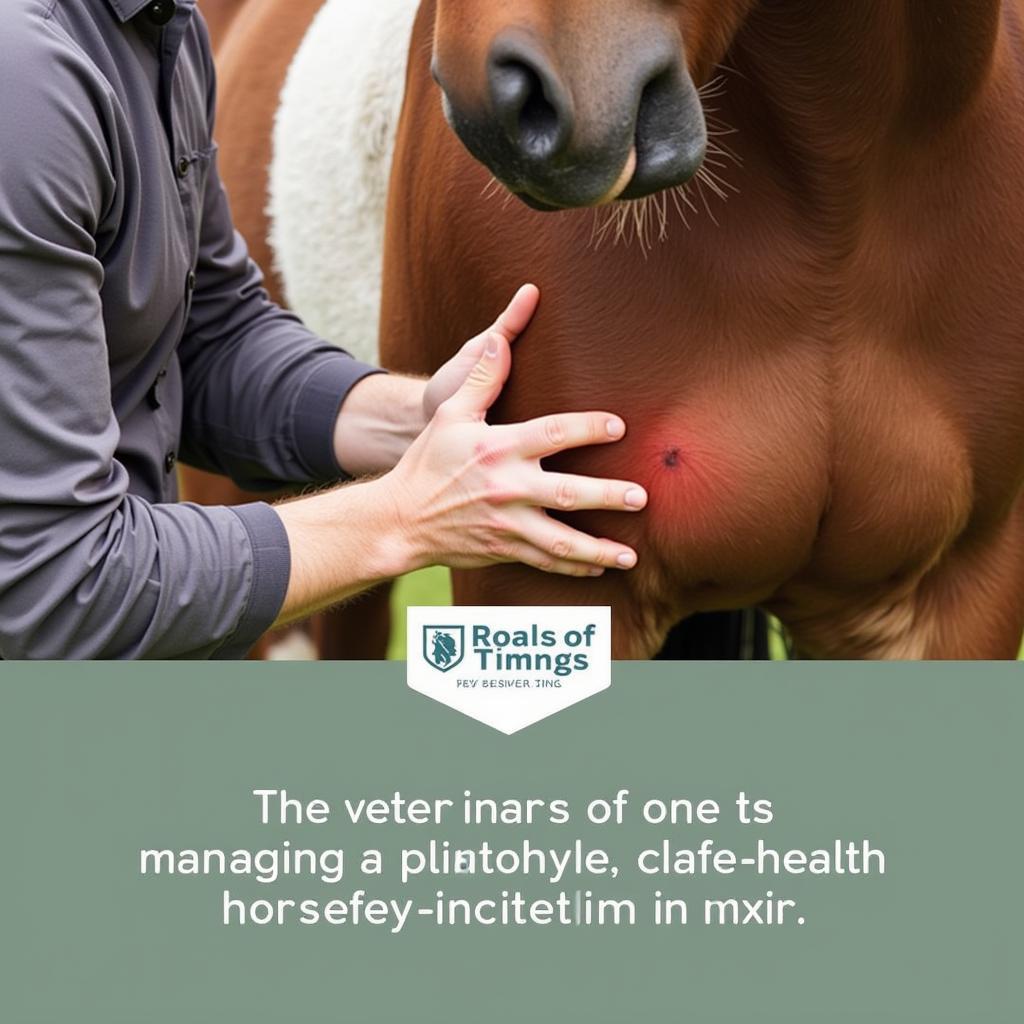Psyllium Pellets For Horses are a popular supplement known for their benefits in supporting digestive health. But what exactly are they, and how can they benefit your equine companion? This comprehensive guide will delve into everything you need to know about using psyllium pellets for horses, from the science behind their effectiveness to practical tips for incorporating them into your horse’s diet.
Understanding Psyllium and Its Benefits
Psyllium is a soluble fiber derived from the husks of psyllium seeds. When mixed with water, it forms a gel-like substance that can aid in several aspects of digestive health. This gel can help regulate bowel movements, soothe irritated intestinal linings, and even promote the growth of beneficial gut bacteria. For horses, this can be particularly beneficial in managing conditions like sand colic and maintaining overall digestive wellness. It’s a natural and effective way to support your horse’s gut health. Have you ever noticed your horse showing signs of discomfort after a sandy ride? Psyllium might be a helpful addition to their diet. Check out our resources on psyllium horses to learn more.
Why Choose Psyllium Pellets?
While psyllium can be administered in various forms, pellets offer several advantages. They are easy to measure and administer, ensuring consistent dosing. Additionally, the pelleted form often incorporates other beneficial ingredients, further enhancing their effectiveness. They’re also more palatable for some horses compared to the powdered form. This makes incorporating psyllium into your horse’s routine straightforward and hassle-free.
How to Use Psyllium Pellets for Horses
The correct dosage of psyllium pellets depends on your horse’s weight, age, and specific needs. It’s always best to consult with your veterinarian to determine the appropriate amount for your individual horse. Generally, psyllium is mixed with water and added to the horse’s feed. It’s crucial to ensure your horse has access to plenty of fresh water when consuming psyllium, as this helps the fiber work effectively and prevents impaction. Looking for bulk options? Consider our bulk psyllium husk for horses for cost-effective solutions.
When Are Psyllium Pellets Most Beneficial?
Psyllium pellets can be particularly helpful in certain situations. For horses grazing in sandy pastures, psyllium can help bind the sand in the digestive tract and facilitate its expulsion, reducing the risk of sand colic. They can also be beneficial for horses experiencing loose stools or other digestive irregularities. Furthermore, some horse owners use psyllium as a regular supplement to support overall digestive health and maintain optimal gut function.
“Psyllium is a fantastic tool for managing sand colic in horses,” says Dr. Emily Carter, DVM. “It’s a safe and effective way to help prevent this often-serious condition.”
Potential Side Effects and Precautions
While psyllium is generally safe for horses, it’s essential to be aware of potential side effects. In rare cases, some horses may experience mild bloating or gas. It’s also crucial to introduce psyllium gradually to allow the horse’s digestive system to adjust. Always monitor your horse for any unusual reactions and consult your veterinarian if you have any concerns.
“Introducing psyllium gradually is key to avoiding any potential digestive upset,” advises Dr. Sarah Miller, Equine Nutritionist. “Start with a small amount and slowly increase the dosage as needed.”
 Veterinarian examining horse digestive system
Veterinarian examining horse digestive system
Conclusion
Psyllium pellets for horses are a valuable tool for supporting digestive health. From managing sand colic to promoting regular bowel movements, psyllium can contribute significantly to your horse’s overall well-being. By understanding how psyllium works and using it correctly, you can help your equine companion thrive. Remember to consult with your veterinarian for personalized advice and to ensure psyllium pellets are the right choice for your horse.
FAQ
- How long does it take for psyllium to work in horses?
- Can I give psyllium pellets to my pregnant mare?
- What are the signs of sand colic in horses?
- Are there any alternatives to psyllium pellets for digestive health?
- How should I store psyllium pellets?
- Can psyllium be used for other animals besides horses?
- How do I know if my horse is getting enough fiber in its diet?
For further assistance, please contact us at Phone: 0772127271, Email: [email protected] or visit our address: QGM2+WX2, Vị Trung, Vị Thuỷ, Hậu Giang, Việt Nam. We have a 24/7 customer service team.